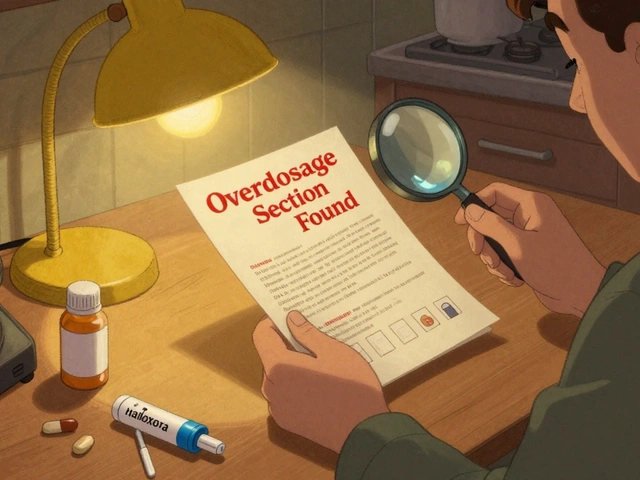Patient's journey — practical steps to better treatment decisions
Being a patient means more than taking pills. It's asking the right questions, spotting red flags, and finding treatments that fit your life. This tag pulls together real-world guides on buying meds, comparing alternatives, and handling side effects so you can move through care with more confidence.
Start by tracking what matters. Note symptoms, dose times, and side effects in a simple notebook or phone note. That makes conversations with your doctor useful—no guessing, just facts. Bring a short list of priorities: symptom control, avoiding certain side effects, cost limits, or ease of access.
How to evaluate treatment options
When a doctor suggests a drug, don’t nod and leave. Ask how it works, common side effects, and how long it should take to help. If cost or access is a concern, ask about alternatives. For example, our posts compare drugs like losartan (Cozaar) and newer options for cholesterol or diabetes—these comparisons show who benefits most and why one choice might fit you better.
Look for practical trade-offs. A medication might be cheaper but need daily blood tests. Another might be pricier but require less monitoring. Match the treatment to your routine and budget. Read real-user reports in our articles to see how people actually fare on these meds, not just clinical trial blurbs.
Safe buying, smart use
Buying medicine online can save money, but safety matters. Check that the pharmacy requires a prescription, uses secure checkout, and lists a physical address. Our guides on buying antibiotics, peptides, or ED meds walk through trusted signs and common scam tactics. If a deal looks too good, it often is—stick to pharmacies with clear contact info and verified reviews.
Keep a medicine folder: prescription labels, dosing instructions, and a record of where you bought each drug. If you swap brands or order from a new source, compare pill appearance and packaging. If anything looks off, stop and ask a pharmacist or your prescriber before taking it.
Side effects and interactions are part of the journey. Don’t ignore new symptoms. Some interactions are surprising—citrus fruits, for example, can affect how certain drugs work. Our citrus interaction article explains which medicines to watch. If side effects are mild, track them for a week; if they’re severe or sudden, seek care immediately.
Finally, use support. Bring a friend to appointments, join condition-specific groups, and use clear notes from our articles when you talk to clinicians. Read posts under this tag for targeted, practical tips—like alternatives when a drug isn’t right, safe online buying checklists, and real-world user experiences that help you make smarter choices.
Want to start? Browse the most relevant posts below and pick one that matches your current concern—cost, side effects, or finding a safer supplier. Small, informed steps make the patient’s journey less stressful and more effective.

A Patient's Journey: Living with Mycophenolate Mofetil
My journey with Mycophenolate Mofetil began when I was diagnosed with an autoimmune disease. This medication has become a vital part of my daily routine, helping to suppress my overactive immune system. While taking Mycophenolate Mofetil, I've experienced some side effects, but the overall benefits far outweigh the drawbacks. Through regular checkups and open communication with my healthcare team, we've been able to manage my condition effectively. Living with Mycophenolate Mofetil has taught me the importance of self-care and maintaining a healthy lifestyle to support my treatment.
Read More




